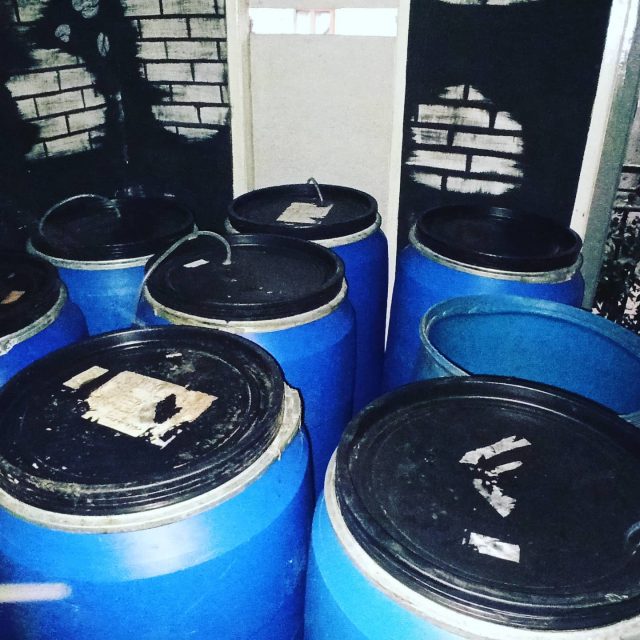
At the beginning of 2020, Mount Merbabu had become one of our signature origins for natural processing. For a catimor variety, this coffee has a relatively high sugar content at about twenty to twenty-two percent, and we love its nutty sweetness and the heavy body characteristic of many Indonesian coffees. When we heard about the chance to use a new processing method to improve the flavor, we knew the village of Tosoro would be a great candidate.
Mikael Jasin, Indonesia Barista Champion ’18 and ’19 and 4th in World Barista ’19, along with Indonesia International Trading Company, partnered with us to introduce Tosoro to a processing method relatively new to the world of coffee: anaerobic fermentation. Dr. Intan Taufik, a microbiologist at the Bandung Institute of Technology, also joined the team to study Mount Merbabu’s terrior – the unique environmental factors that influence the coffee’s flavor – and help us develop our starter. We used a terrior-specific microbial mix, called a starter, to impart specific flavors to the green coffee beans.
Anaerobic fermentation works by limiting oxygen flow (our farmers use sealed plastic bags) and allowing only certain microbes to develop and ferment throughout the process. By controlling the microbial population and adding specific microbes through a starter, we limit bacteria that cause subpar flavors and lead to quicker spoilage of the green beans. In this environment, fructose breaks down into alcohol acids that enhance the coffee’s taste. Anaerobic fermentation is popular for its development of complex flavors. As we started our experiment with anaerobic fermenting for the first time, we received some unexpected results.
After picking the ripe coffee cherries, we were ready to begin the anaerobic portion of the process, but the microbe starter had not yet arrived from the university. Our farmer relations manager was worried that the coffee would spoil, so he went ahead and started the anaerobic process without using any additional starters – the fermentation occurred with all-native bacteria and yeast from the local soil. Once it all came to the cupping table in steaming mugs, that self-started fermentation batch turned out to be the best of all. Dr. Intan Taufik even traveled out here to take soil samples and research the nature of this special terroir. The success of this process reminded our team about the interrelatedness and interdependence of the land, the plants, and the people. That beautiful connection truly influences the quality of your cup of coffee.
In the end, we pulled out unique flavors we had never tasted before in Mount Merbabu’s beans, like ambarella, grape skins, and nectarine. The Merbabu coffee’s quality score (SCAA) went from a basic 81-83 to an 85, making it a specialty coffee. The flavor profile developed by anaerobic fermentation is increasingly hyped, and for good reason. We are excited to continue to develop this process, expand it to more of our villages, and further improve the flavor for next year’s harvest.
